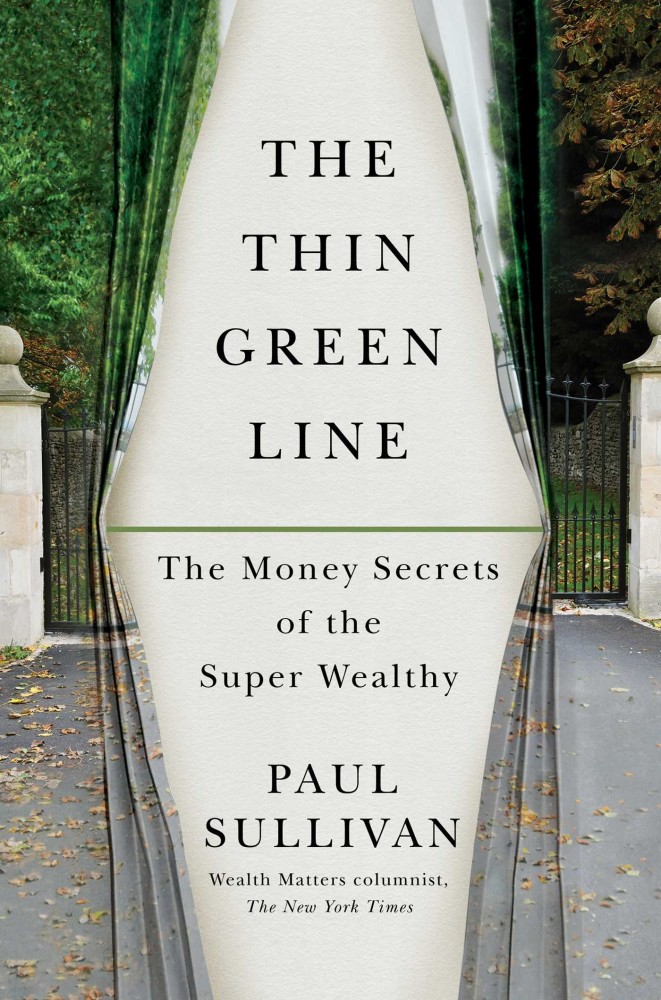By Larry Light
AdviceIQ.
Paul Sullivan had a rough early life: a threadbare home, divorced parents, a lousy school and few prospects. Today, he is a highly regarded personal finance columnist for the New York Times, has a nice salary and lives in a wealthy suburb. How did that happen? Pluck and luck, yes, but also insights from savvy onlookers.
His path to financial well-being owes a lot to his grandfather, a retired postman who saved money and spent prudently. The grandfather rescued Paul and his mom from their squalid apartment in a dangerous drug-dealer-infested town, installing them in a condo he bought in a nicer community.
The older man figured that Paul could win a scholarship to a local private school, and that indeed panned out. Paul thrived in the new school and got money to go to a top college. Paul lived within his means as he set forth in the adult world. He rose as a journalist and married a woman with a good job as a recruiter.
Sullivan’s story illustrates the power of good advice. While the grandfather’s buying the condo was a big help, his example and his strategic planning for education made a big difference.
Certainly, Sullivan had negative influences to overcome. Both his parents, while financially strapped, were spendthrifts. His father, in the 1980s, had a thing for Ralph Lauren Polo shirts, when other golf shirts cost one-third as much. His mother worked part-time jobs she hated so she could buy fancy jewelry she did not need.
These life lessons are distilled in Sullivan’s new book, “The Thin Green Line: The Money Secrets of the Super Wealthy.” This is a superb, and very useful, read. In his lexicon, the “wealthy” are not necessarily the mega-bucks crowd. He defines wealthy as “having more money than you needed to do all the things you wanted.” In other words, it’s a psychological state.
The antithesis of the wealthy is the “rich,” who may have a lot of money and possessions, but their status is precarious, and they live in fear. As Sullivan describes them: “Rich was the guy in my town who drove the red Mercedes SL500 roadster, lived in a heavily mortgaged … home. And had a month to find a job before he, or his second wife, blew through what little savings they had.”
There are dozens of sad tales of movie stars and athletes who wasted pots of money and ended up with nothing. Sullivan serves up mini-profiles of wiser souls, such as star quarterback Roger Staubach, who triumphed with the Dallas Cowboys in the 1970s.
Staubach, who had kids to support, knew that his playing days were numbered, and became an insurance salesman. He eventually had his own company, and a solid financial footing.
Among the many virtues of Sullivan’s book is that it shows how the need for financial advice, born of hard scrutiny from knowledgeable observers, is an ongoing process. Your situation changes, and so does your need for a fresh look.
The book begins with an intriguing set piece in which Sullivan visited a group called Tiger 21, made up of well-heeled folks (minimum worth: $10 million). Every month, a panel from this club dissects the finances of a member, a brutal process Sullivan calls “tough love.” He went before the tribunal, confident they would applaud the judicious decisions he and his wife, Laura, had made. He was wrong.
The panelists trashed key parts of the couple’s financial structure. They found the Sullivans’ low level of life and disability insurance to be perilous. One member recommended they sell their Florida vacation home, even though they’d lose money. The inquiry focused on the shakiness of Paul and Laura’s industries and cast doubt on their assumptions that their incomes would keep increasing.
Sullivan left the club’s Manhattan townhouse stunned. He didn’t realize how extravagant he had become. When Laura later picked him up at their Connecticut train station, it was in their new car. He realized that they were having two bathrooms renovated.
“Why had I not thought more about the difference between what we could afford and what we needed?” he writes.
But indeed, he did think about it, eventually. And that’s good. Constant re-examination is crucial to keep your money safe, and you, too.
___
ABOUT THE WRITER
Larry Light writes for AdviceIQ, which delivers quality personal finance articles by both financial advisors and AdviceIQ editors.














































































































































































































































































































































































